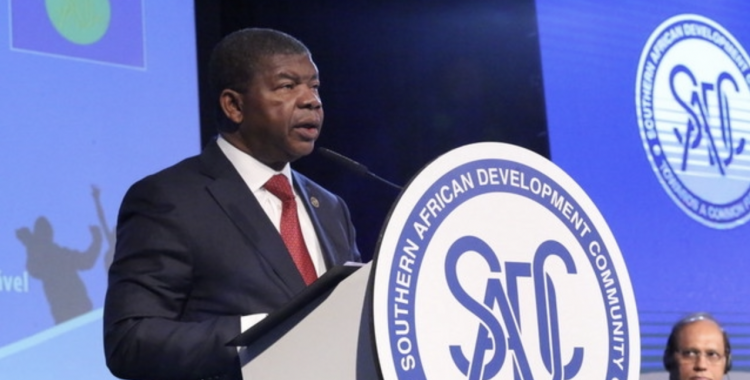Osvaldo Mboco referred, in statements to Lusa, that Angola is a country of pacifist origin and essentially values respect for the norms of international law, as well as the institutions of the democratic states of law, stressing that the performance of the lusophone country, as an intermediary, essentially based on the limits of the charter of the United Nations, the African Union and other international instruments.
"President João Lourenço has been unfolding at the level of the African continent itself, specifically at the level of the Great Lakes Region on matters of management and conflict resolution, and we have been attending the various meetings held or promoted by Angola in this same direction", said Osvaldo Mboco, emphasizing that Angola is a country that, to a certain extent, has consensus on the continent on these matters and has a proactive and active diplomacy, which gives it some political capital.
Angola hosts Thursday the 43rd ordinary summit of SADC Heads of State and Government, in which the Angolan President, João Lourenço, assumes the rotating presidency of the organization, succeeding the President of the Democratic Republic of Congo (DRCongo), Félix Tchisekedi Tshilombo.
According to Osvaldo Mboco, political capital alone "does not solve everything or is not enough", which has also brought together Angola's action "is the political will to see the region pacified".
"What could happen now, with the presidency of Angola at SADC level, is that President João Lourenço will have increased responsibilities on these matters", said the analyst, stressing that João Lourenço will lead an institution with a greater expression compared to the Great Lakes Regional Conference.
The expert highlighted that in SADC the aspects that will dominate are not simply those linked to peace, security and stability, but also issues such as human and financial capital, industrialization, youth and women empowerment.
The central spectrum, continued the analyst, will be peace, security and stability in the region, noting that João Lourenço will find two points of tension, namely the conflict in the east of neighboring DRC and acts of terrorism in Cabo Delgado, Mozambique, where the SADC has a force (Military Mission of Southern Africa - SAMIM) to fight the insurgency.
"The President will deal with these two dossiers in order to seek peace and security for these two States, because the primary element for the integrative process to work is for the region to be stable or secure from a political and military point of view, for trade to actually exist," he said.
Another old issue on the agenda, highlighted Osvaldo Mboco, has to do with trade support infrastructures, such as the issue of regional roads, which does not exist in SADC, and cross-border railways.
For Osvaldo Mboco, when a country assumes the presidency of an organization it also ends up defining its agenda and "Angola, along with the interests of the organization, may also put on the agenda of discussions the infrastructures to support trade, namely the railway , bearing in mind the investment it made in the Lobito Corridor, which has a cross-border character".
Looking at the motto of the summit - "Human and Financial Capital: The main factors for the Sustainable Industrialization of the SADC Region" -, Osvaldo Mboco stressed that the region has about 350 million inhabitants, that is, a quarter of the African population, estimated at 1.4 billion inhabitants, with human capital being decisive for the challenges of regional organization.
According to the specialist in international relations, the challenges of this African human capital are great, since "a large number of young people do not have professional preparation and in some cases are illiterate".
"And this illiteracy is not just about knowing how to read, write and count, we are also talking about access and knowledge of new technologies, the digital age, and it is fundamental to look at another prism from the point of view of the motto, which is the financial capital, which is crucial for carrying out operations of various structural programs and projects", he stressed.







